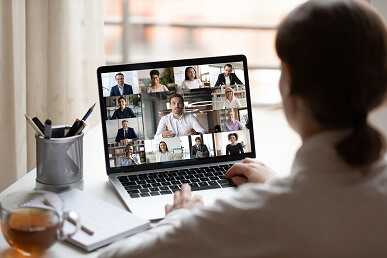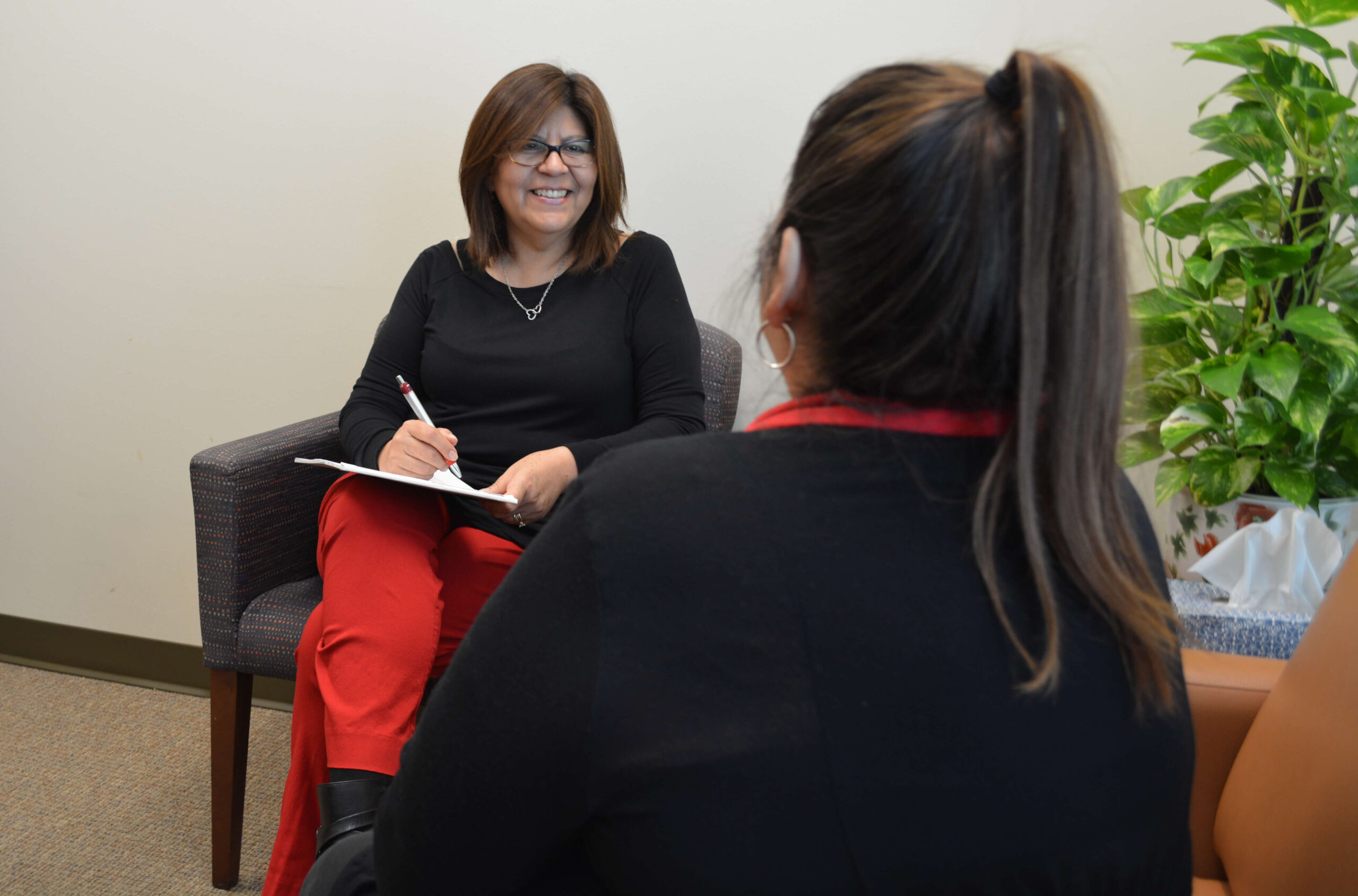10.6.2021

The Counseling and Behavioral Health Clinic at Catholic Charities is using technology to help low-income people connect with therapy opportunities while remaining safe.
As World Mental Health Day, Sunday, October 10 approaches, the pandemic is accelerating change in how mental health services are delivered. Catholic Charities adapted its services to provide access to low income families.
Life before the pandemic was stressful enough, but stress levels are off the charts for many low-income families during the COVID-19 era. People with limited resources carry an extra burden while contending with pandemic-related challenges: lost jobs, food insecurity, fear of eviction, all set in an environment that limits close contact with family and friends.
Accessing the services of a mental health professional doesn’t have to become an insurmountable challenge during the pandemic. The Counseling and Behavioral Health Clinic at Catholic Charities of the Archdiocese of Galveston-Houston is using technology to help low-income people connect with therapy opportunities while remaining safe.
Since in-person counseling sessions can pose a safety risk during a time of social distancing, the nonprofit clinic adopted use of tele-mental health services early in the pandemic. Catholic Charities’ clinicians began using a specific video platform that ensures client confidentiality during counseling sessions. Clients can speak freely in private without worrying that sessions will be recorded.
“We know this is a proven technology,” said Clinical Supervisor Jaime Rivera. “We prefer the video-based platform over a telephone call, so we can see a person’s expressions and body language, which can provide cues about the client’s state of mind or emotional state.”
Mental Health Tips During COVID-19 from Catholic Charities Counselors
The Counseling and Behavioral Health Clinic helps families of any income level with everyday problems build healthy relationships and heal from trauma and grief. Licensed bilingual counselors serve families in schools, at parishes and in other locations throughout the community.

Catholic Charities’ counselors are available to speak to you about any anxiety or fears you may be experiencing related to the COVID-19 pandemic. Call us at 713.874.6790.
“Counseling is integrated into many of our programs,” said Catholic Charities President and CEO, Cynthia N. Colbert, MSW. “Because faith informs all we do, we acknowledge the dignity and self-worth of an individual by seeing the whole person. An individual’s mental wellbeing is essential to their ability to live with self-sufficiency.”
A central goal of the clinic is to remove barriers that prevent people in need from getting mental health care. Barriers could include financial issues, the stigma of seeking mental health treatment, transportation challenges, or even an overly hectic schedule.
Tele-mental health care allows people to talk with a qualified expert therapist from virtually anywhere they can use a smart phone or tablet. “Many people have already been using tools like FaceTime and Zoom during the pandemic,” said Rivera. “It’s a common everyday occurrence so people can see loved ones and do business. Our clients generally don’t find it distracting while interacting with their therapists.”
Clinicians received training on how to use a video platform so they can make their clients feel even more comfortable. For example, therapists maintain awareness about how they appear on camera, and take measures to prevent background noise and images that could create an unwelcome distraction while someone is talking about highly personal issues.
“It’s the way of the world now,” said Rivera. “Before the pandemic, we were planning to use tele-mental health at some point in the future. The future is here now.”
Catholic Charities’ Counseling and Behavioral Health Clinic is open to all children, families, singles and couples regardless of race, religion or socioeconomic status. Sessions are available on a sliding scale based on a family’s income and will be assessed when making an appointment. Some insurance plans are accepted.
To make an appointment, call 713-874-6590 or complete the online request form here.
